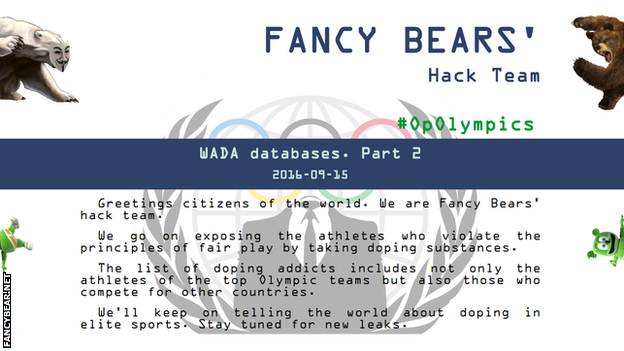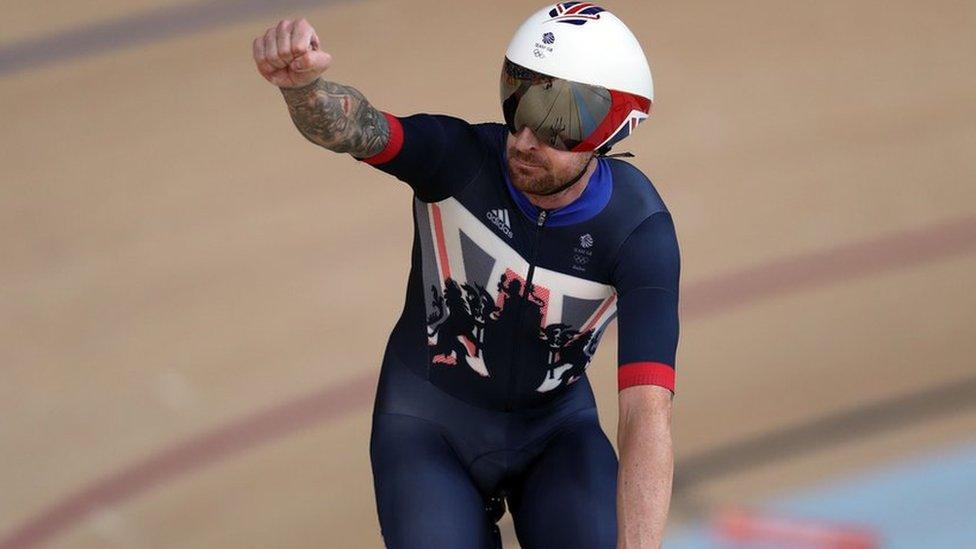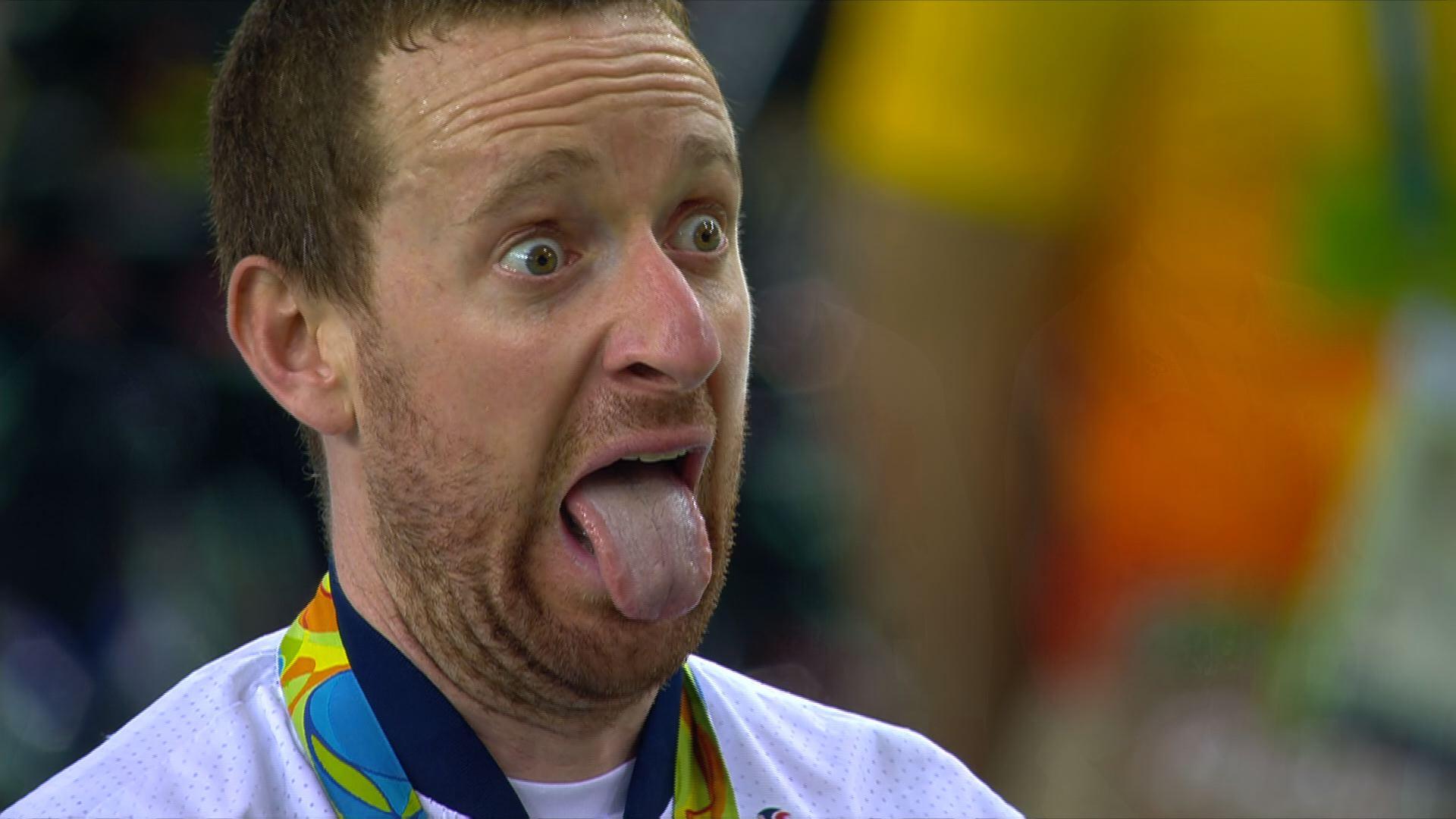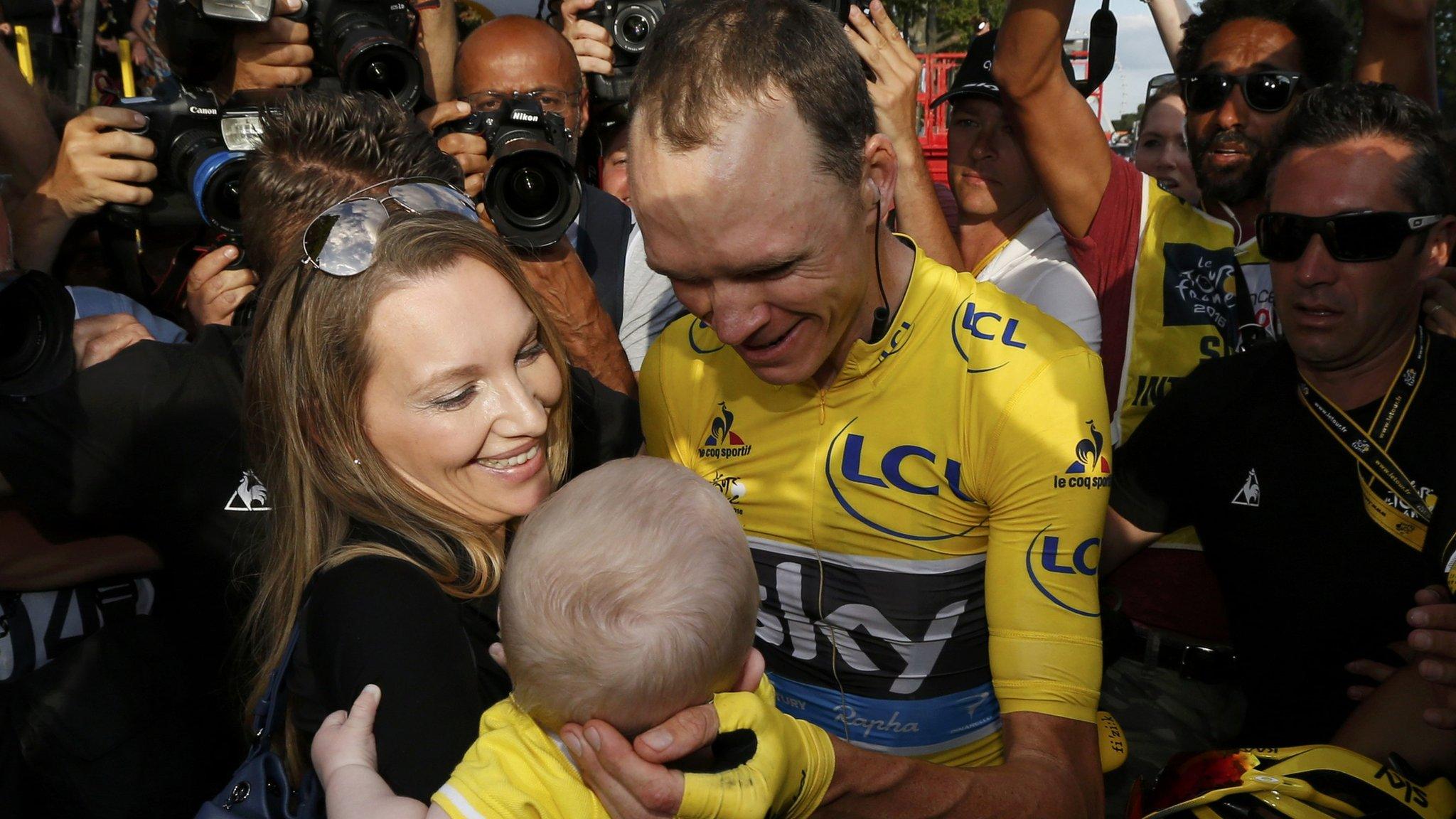Medical records hacked: 53 British athletes from Rio could be named - Ukad
- Published

The Fancy Bears hackers released the TUEs via their website
Fifty-three British athletes from the Rio Olympics may be at risk of having their medical details made public, says the head of UK Anti-Doping (Ukad).
Three-time Tour de France champion Chris Froome and five-time Olympic gold medallist Sir Bradley Wiggins were among those whose stolen files were published by hackers Fancy Bears.
Ukad chief Nicole Sapstead said it is trying to contact the athletes.
The files were stolen from the World Anti-Doping Agency (Wada).
They relate to therapeutic use exemptions (TUEs), which allow banned substances to be used for medical reasons.
Asked by BBC Sport how many British athletes could have their medical details disclosed, Sapstead added: "That's something we are determining.
"We are cross-referencing Team GB with the list of TUEs that are either currently in place or which have been historically granted.
"Those are the athletes we will be contacting in the first instance."
Sapstead said Ukad was trying to contact the five athletes - Froome, Wiggins, golfer Charley Hull, rugby sevens player Heather Fisher and rower Sam Townsend - whose names have already been published.
She hoped speaking to them would give them some comfort.
She also said Ukad would aim to give them "some re-assurance that we are working really closely with Wada about these leaks and trying to identify the specifics of exactly what has got into this cyber group's hands".
Ukad's Nicole Sapstead criticises hacking
Sapstead said she was "incredibly concerned and disappointed" that personal data of athletes had gone into the public domain.
"I simply can't condone this kind of action," she added. "I don't think it's appropriate to publicise an athlete's personal medical condition or the substance they are being subscribed."
The leaks occurred on Wednesday, but there is no suggestion the named athletes are involved in any wrongdoing.
British Cycling condemned the leaks, adding it was "very proud" of its anti-doping culture, but Team Sky rider Froome, 31, said he had "no issues".
"I've openly discussed my TUEs with the media and have no issues with the leak, which only confirms my statements," he added.
"In nine years as a professional, I've twice required a TUE for exacerbated asthma. The last time was in 2014."
Froome, speaking during the 2015 Tour de France, questioned critics
Team Sky said applications made for TUEs have "all been managed and recorded in line with the processes put in place by the governing bodies".
A spokesman for Wiggins insisted the information was not new.
"Everyone knows Brad suffers from asthma," said the spokesman. "He follows Wada regulations to the letter.
"The leak of these records is an attempt to undermine the credibility of Wada and that's something for them to deal with."
Fisher said she was a clean athlete who "had no issue with the information being in the public domain".
British Rowing added that Townsend, 30, has always worked within, and been compliant with, anti-doping rules.
Chris Froome on Tour de France, fan abuse, anti-doping and the Vuelta
What are therapeutic use exemptions?
A TUE allows an athlete to take a prescribed substance or undergo treatment which is prohibited because they are ill.
British athletes must contact their national governing body or follow UK Anti-Doping (Ukad) guidance, external before applying for a TUE.
There are strict criteria for one to be granted:
The athlete would suffer significant health problems without taking the substance;
It would not be significantly performance-enhancing;
There is no reasonable therapeutic alternative to its use;
The need to use it is not due to prior use without a TUE.
Ukad says it has "a number of robust controls in place to make it as difficult as possible" for athletes to misuse the system.
Who are the Fancy Bears?
A hacking group that claims, external it stands for "fair play and clean sport". It says TUEs are licences for doping and describes Wada as "corrupt and deceitful".
Wada director general Olivier Niggli said there was "no doubt" that the hack was retaliation against Wada for its report into Russian state-sponsored cheating and appealed to the Russian government to help stop it.
Russia's track and field team were banned from the Rio Olympics over an alleged state-backed doping programme.
All Russian athletes are barred from the 2016 Paralympics.
Russian authorities have denied any involvement with the hacking group.
Do they have a case?
Critics of TUEs claim they can be used by athletes as a way to bend anti-doping regulations.
A Cycling Independent Reform Commission report in 2015 claimed that abuse of TUEs is commonplace, with one rider alleging that 90% of them are used to boost performance.
In March 2015, former Olympic road race champion Nicole Cooke criticised both Froome for his use of TUEs and Brian Cookson, the head of the International Cycling Union, for failing to tackle the issue.
However, every athlete whose details have been leaked had the permission of the anti-doping authorities to take the substances revealed by Fancy Bears.
Froome took the steroid prednisolone to treat chest infections, while Wiggins took salbutamol to treat asthma.
Both have spoken strongly in the past about their anti-doping beliefs.
Bradley Wiggins: "We're having to convince people the sport has changed. It's difficult to convince people"
Analysis
BBC sports editor Dan Roan:
They may have been braced for it, but this second leak will dismay the anti-doping authorities.
None of the athletes named has broken any rules, and several of the medical exemptions detailed were already known.
But the leaks will intensify the debate around TUEs and force sport to ask itself uncomfortable questions about the legal use of certain banned substances.
Is the system being exploited by some athletes? Should TUEs be allowed at all, especially in competition? And given the lack of trust in sport now, is it time to make all TUEs public, even if it means private medical details are revealed?
- Attribution
- Published15 September 2016

- Attribution
- Published15 September 2016

- Published13 August 2016

- Published24 July 2016
